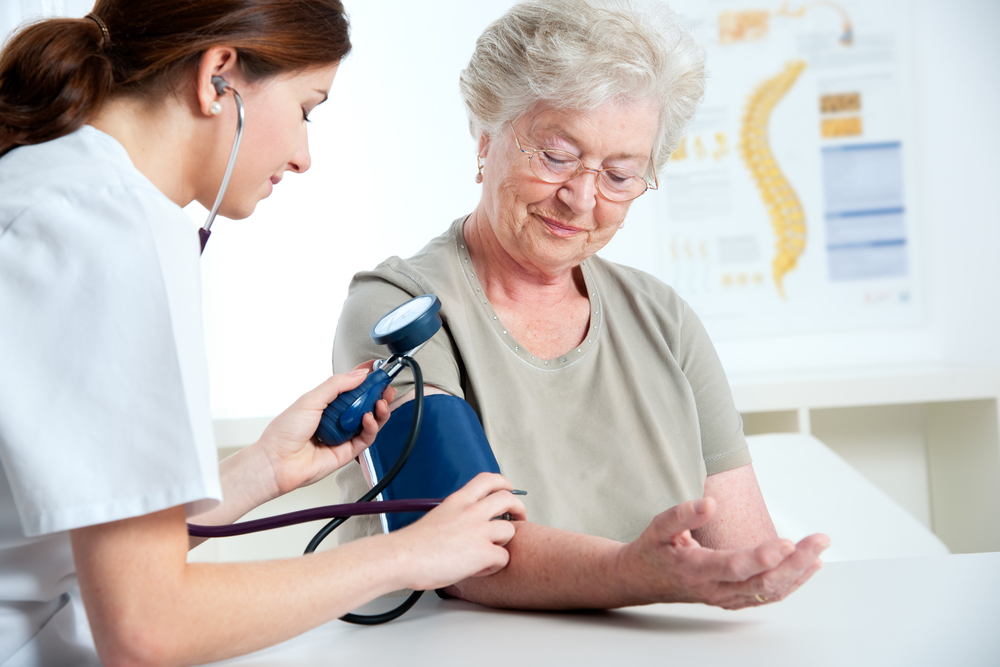 July 19, 2017
July 19, 2017
Every 40 seconds, someone living in the U.S. has a stroke. A stroke or “brain attack” occurs when brain cells are being deprived of oxygen and start to die. While most people affected by strokes are 65 years of age and older, strokes can and do happen at any stage of life.
When someone is having a stroke, time is a HUGE factor. Approximately 2 million brain cells are lost for each minute blood flow is delayed after a stroke. When someone has a stroke, time equals brain power. To save lives, everyone should know the common warning signs of a stroke and how to prevent one from occurring. Below, we’ve covered the most common symptoms and how to avoid having a stroke in your lifetime.
Think F.A.S.T. to Recognize the Signs of a Stroke
Strokes are unique because the symptoms surface rapidly with little to no warning. Three symptoms occur in 75% of all strokes. While these common symptoms can be short lived, they often happen in combination—so don’t ignore them! The National Stroke Association suggests using the acronym F.A.S.T. to help remember the common symptoms of a stroke:
- F stands for face: At the onset of a stroke, a part of the person’s face may droop on one side.
- A stands for arms: Watch for arm numbness, weakness, or inability to raise arms.
- S stands for speech difficulty: Take notice of slurred speech or the inability to talk.
- T stands for time: You need to act fast! If you see these symptoms in combination, call 911.
These are the most common symptoms of a stroke, but everyone’s body is different. More warning signs of a stroke have been reported, especially in women. Watch out for these additional stroke symptoms, particularly if you or your loved one is female:
- Overall fatigue, weakness, or fainting
- Difficulty or shortness of breath
- Confusion, disorientation, and unresponsiveness
- Sudden changes in behavior or agitation
- Hallucination
- Pain
- Seizures
- Hiccups
Knowing the warning signs of a stroke is vital because often the signs are not recognized, causing treatment to be delayed. Remember, time is an important factor! To prevent disability or death, get in touch with emergency services as soon as possible.
The Best Ways to Prevent a Stroke
There are a couple of things you and your loved ones can do to prevent having a stroke. Many of the preventative measures include making healthy lifestyle choices like:
Eating a Healthy Diet and Exercising
To help prevent a stroke, it’s a good idea to eat foods that are low in saturated fat, trans fat, and cholesterol yet high in fiber. Limiting your sodium intake is also a good way to lower your high cholesterol and high blood pressure. While you’re eating right, get out and move it! Regular exercise combined with a healthy diet can prevent a stroke and a host of additional health problems too.
Quitting Smoking
Flick that butt goodbye! Smoking cigarettes doubles your risk of having a stroke. If you do smoke, quitting will lower the possibility of having a stroke among other serious health complications. If you don’t smoke, don’t start! Refraining from tobacco use prevents dangerous clots from forming in vein and arteries.
Limiting Your Alcohol Intake
Drinking too much can raise your blood pressure. According to the CDC, men should have no more than two drinks per day, and women only one. Limiting your alcohol intake can help keep your blood pressure low and prevent a stroke.
Consulting Your Doctor
You should be getting regular checks from your family physician. If you have high blood pressure or cholesterol, there are medications that can help lower it. By making regular appointments, having your health checked, and consulting your doctor, you can help manage your blood pressure and cholesterol to prevent a stroke.
Understanding Your Family History
Knowing your family history can help you make decisions about your health. If your family has a history of high blood pressure, high cholesterol, or strokes, you should consult your doctor to see if there are any additional preventative steps you can take.
When a Stroke Occurs, Moments Matter
It can be difficult to remember the signs of a stroke in the moment, as they can be easy to overlook or mistake for something else. To help you and your loved ones understand the signs of a stroke and how to prevent one from occurring, consult this handy infographic created by Crouse Hospital.

The effects of a stroke can be life-altering and are the leading cause of serious long-term disability in the U.S. If you or someone in your family needs assistance recovering from a stroke in the comfort of their home, we can help. Contact us today to start your care journey with us.



